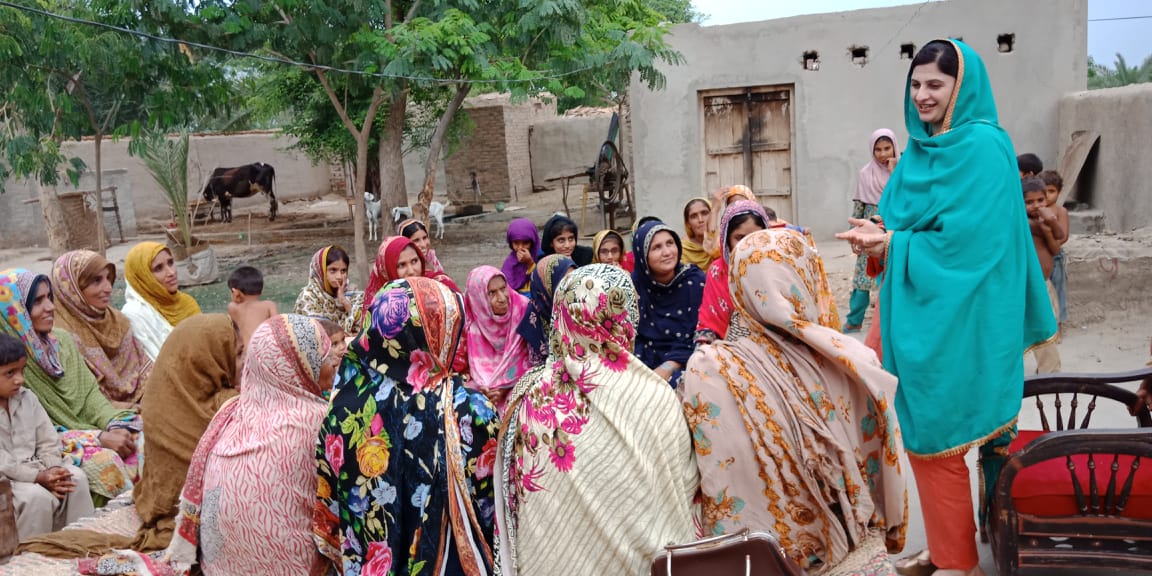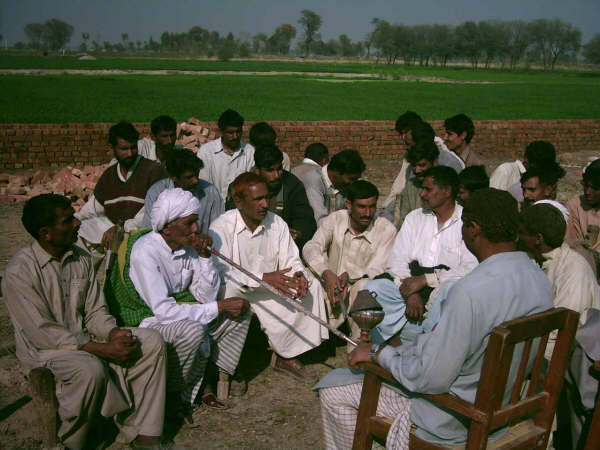Effective involvement and participation of shareholders, particularly farmers, is vital for the successful implementation of any development program, especially in the field of agriculture. In Pakistan, the key to the successful execution of the on-farm water management (OFWM) program is the active involvement of farmers, who have been following a community-driven implementation approach for the past 40 years. The OFWM staff has demonstrated an adequate capability and capacity to carry out the necessary social mobilization and has organized about 48,000 water users' associations (WUAs), with a membership of approximately 2,160,000 farm families in the province, for the improvement of watercourses.
The success of the OFWM program can be attributed to the community-driven approach that is followed, which emphasizes the active participation of farmers in the development and implementation of water management interventions. This approach ensures that the interventions are aligned with the needs of the farmers, and the ownership of the interventions lies with the farmers themselves. The farmers are not just passive beneficiaries of the interventions but are active partners in the process, which results in the sustainability of the interventions.
The WUAs have played a crucial role in the success of the OFWM program by contributing in cash and kind for the civil works and earthen improvements. The fact that they have contributed approximately PKR 2.312 billion and PKR 2.051 billion, respectively, as skilled and unskilled labor for civil works is a testament to the commitment of the farmers towards the program. Similarly, their contribution of approximately PKR 5.454 billion as unskilled labor for earthen improvements and PKR 2.73 billion for material costs is commendable.
The success of the OFWM program is not just limited to the financial contributions of the farmers. It has resulted in a significant improvement in the water management practices of the farmers, which has led to an increase in crop yields and an improvement in the livelihoods of the farmers. The program has also contributed to the conservation of water resources, which is critical in a water-stressed country like Pakistan.
In conclusion, the success of the OFWM program in Pakistan is a result of the active participation and involvement of the farmers in the development and implementation of water management interventions. The community-driven approach that is followed ensures that the interventions are aligned with the needs of the farmers, and the ownership of the interventions lies with the farmers themselves. The contributions of the WUAs, in terms of financial and non-financial resources, are commendable and have been crucial in the success of the program. The OFWM program can serve as a model for other development programs in the agriculture sector, where the active participation and involvement of the farmers can ensure the sustainability and success of the interventions.
 |
 |
Registration
Registration is the process of signing up or enrolling for a particular service, program, or activity by providing required information. There would be one WUA for each canal watercourse to be improved under the OFWM projects that will be registered under “On Farm Water Management & Water Users' Association Ordinance [Act]-1981 (Amended 2001)”:
Responsibilities
The Water User Association (WUA) plays a critical role in the implementation of watercourse development activities. The WUA has specific responsibilities to ensure that the watercourse is developed and maintained appropriately. These responsibilities include:
- Providing the right of way for constructing watercourse
- Arranging for skilled and unskilled labor required for reconstruction of earthen water channels, installation of structures, and lining of critical reaches
- Procuring construction materials for carrying out civil works
- Settling disputes amongst the water users in respect of channel alignment, fixation of nuccas, distribution of work, etc.
- Making alternate arrangements for conveyance of water during execution of improvement works
- Carrying out civil works in accordance with standards and specifications under the supervision of OFWM field staff
- Undertaking regular O&M of improved watercourses
In addition to these responsibilities, WUAs are encouraged to assume the following functions:
- Undertaking construction/improvement of farmers’ branches and field ditches
- Participating in the process of water allocations and distribution (warabandi) within the watercourse command
- Installing and carrying out O&M of community tube wells
- Developing surface/sub-surface on-farm drainage facilities
- Facilitating the distribution of non-water inputs
- Accessing funding from various government and non-government organizations to carry out development works in the agriculture sector
These responsibilities and functions of WUAs are crucial to ensure the success of the watercourse development activities. By actively participating in these activities, the WUAs can help to develop and maintain the watercourse effectively, which can lead to increased crop yields, improved livelihoods, and conservation of water resources.
